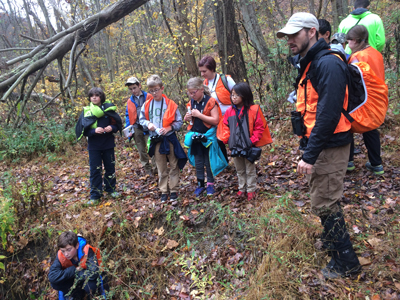Conservation Science
Protecting Pennsylvania’s Plants and Animals
Allegheny Bird Conservation Alliance
In 2016, the Western Pennsylvania Conservancy joined other leading conservation organizations to form the Allegheny Bird Conservation Alliance (ABCA) as a strategic partnership to focus efforts around bird conservation and foster collaboration. Alongside WPC, founding members include the Carnegie Museum of Natural History, the National Aviary, the Audubon Society of Western Pennsylvania, the Animal Rescue League's Shelter and Wildlife Center, the Allegheny Land Trust, and the American Bird Conservancy. Alliance members agreed to identify opportunities to work jointly on the conservation of bird species in Western Pennsylvania.
The ABCA supports the following goals and addresses them through individual and collaborative efforts:
- Protect, restore, and enhance habitats for birds
- Reduce hazards to birds
- Educate and engage citizens in monitoring, caring about, and advocating for birds and their conservation
- Foster youth environmental education with a focus on birds
- Manage invasive species to benefit and protect birds
- Increase awareness of the value of native birds and their habitats
Education, Outreach and Conservation
Through the ABCA partnership, WPC has been involved with several projects aimed at the conservation goals of the group. In addition to bird monitoring and habitat conservation at forested properties in the Pittsburgh region and the BirdSafe Pittsburgh project led by CMNH to investigate issues of bird-glass collisions, we have engaged in education and outreach with students and educators at the Pittsburgh Environmental Charter School (ECS).
Ecologists in the Natural Heritage Program at WPC have enhanced educational opportunities for 4th through 8th-graders participating in birding classes and an extracurricular club at ECS. WPC scientists participate in classroom visits to assist with lessons on bird identification, ecology and conservation issues. Our scientists also lead students and teachers on field excursions near their school grounds and onto WPC-protected properties, like Toms Run Nature Reserve. These outings provide students with a hands-on field experience in a less-structured setting, allowing them to learn more about birds and their habitats from ecologists who study them.
